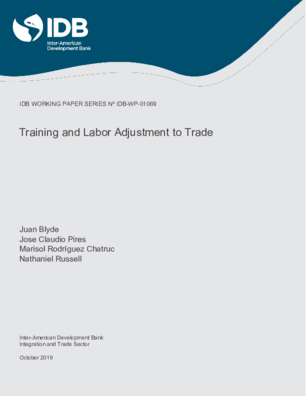Training and Labor Adjustment to Trade
Date
Oct 2019
While there is a large body of literature evaluating how active labor-market policies such as training impact worker outcomes, relatively few studies examine how such policies impact workers who are displaced by trade. The few studies on training and trade-related labor adjustment focus on the impact of trade-specific assistance programs. Most countries in the world, however, do not have assistance programs that are triggered by trade events but instead implement labor-market policies for reasons other than trade. In this paper, we use detailed data on workers’ employment histories and training activities to evaluate the impact of an industrial training program in Brazil on workers who are displaced from manufacturing sectors. We find that industrial training increases the probability of re-entry into the formal labor market one year after displacement by about 13.2 percentage points (equivalent to 30%) and is effective for workers who are displaced from sectors of high exposure to import competition. This effect is explained by workers switching sectors and occupations after training. We also find that training has positive effects on employment spells and cumulative earnings in the two years after displacement.




